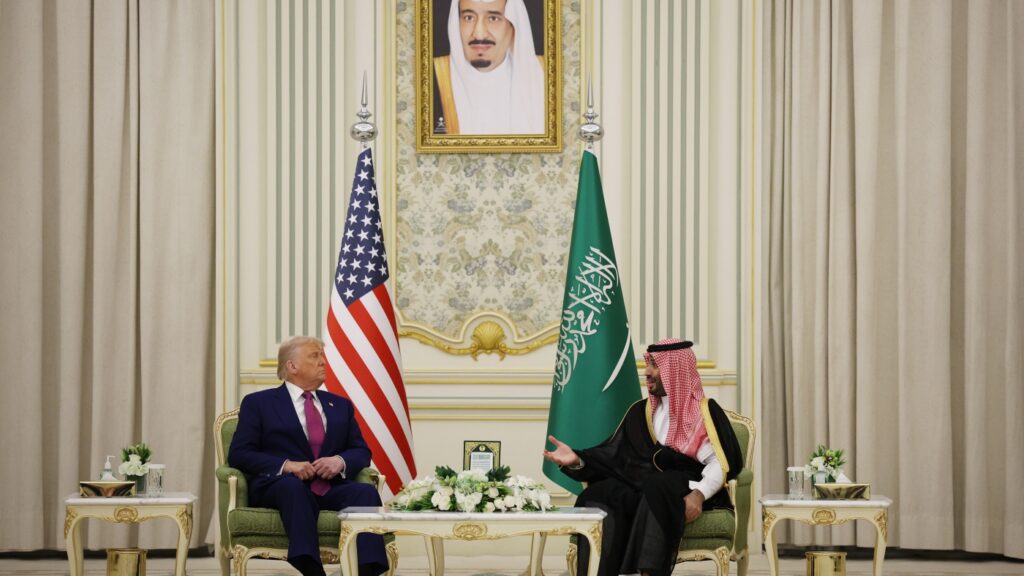President Trump’s recent trip to the Middle East was marked by lavish displays of opulence and grandeur, tailored to his preferences for fealty, power, and glitz. The visit aimed at securing financial agreements, arms deals, and investments for the United States, with Gulf states eager to please the president through various deals, including a notable gift of a $400 million “flying palace” from Qatar.
Despite the focus on deals and transactions, the trip sparked controversy over the plane gift, drawing criticism from both sides of the political spectrum. Accepting the plane could raise constitutional concerns and logistical challenges, leading even some Republicans to voice objections.
While Trump achieved his goal of securing deals, the trip lacked public discussions on democracy and human rights, with the president choosing to focus on commercial relationships rather than addressing pressing issues in the region. His reductive view of the Middle East as a place of progress and prosperity ignores human rights abuses and political turmoil in countries like Qatar and the UAE.
Amid the deal-making, Trump also made headlines by lifting sanctions on Syria, praised its new leader, and discussed Iran, Gaza, and Ukraine. However, his promises of resolving conflicts and forging peace agreements face challenges from entrenched leaders and ongoing geopolitical tensions.
Overall, Trump’s Middle East trip showcased his transactional approach to foreign policy, prioritizing economic interests over democratic ideals and human rights concerns. The visit highlighted the president’s preference for deal-making and personal relationships with foreign leaders, often at the expense of broader diplomatic considerations.

